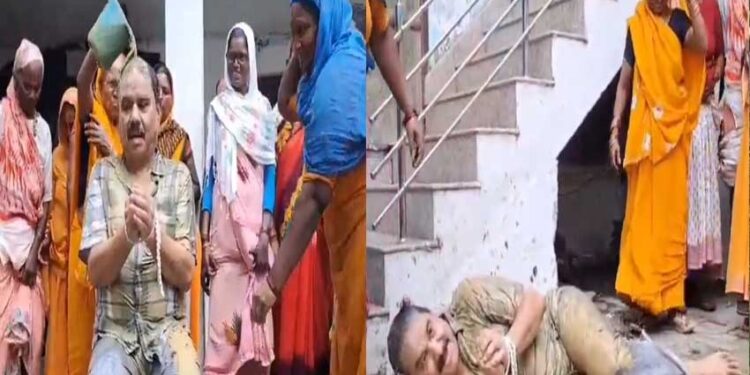Entertainment News Desk – India’s great singer Begum Akhtar was born on this day on 7 October 1914 in Faizabad, Uttar Pradesh. Earlier her name was Akhtaribai Faizabadi. After her marriage to Ishtiaq Ahmed Abbasi, she changed her name to Begum Akhtar. She used to sing Ghazal, Thumri, Dadra, Tappa, Khayal. Let us know today about this ‘Mallika-e-Ghazal’, honored with many awards including Padmashree, Padma Bhushan.
Wanted to become a singer since childhood
Begum Akhtar wanted to become a singer since childhood, but her family was against her wish. However, his uncle encouraged his hobby. Akhtari Bai, who belonged to an aristocratic family, first fell in love with music at the age of seven when she heard a song by theater actress Chanda. He was taught Indian classical music by the famous musicians of that era, Ustad Ata Muhammad Khan, Abdul Wahid Khan and Ustad Jhande Khan of Patiala Gharana.
When he said- I don’t want to learn music
An incident from Begum Akhtar’s childhood is quite famous. In her childhood, she used to go to Ustad Mohammad Khan to learn music. In her initial days, she was not able to sing, due to which Ustad Mohammad Khan once scolded her. On this Begum Akhtar started crying and said that she did not want to learn music. After this, her teacher lovingly explained to her, “I have just given up after this, don’t lose courage like this, my brave daughter, let’s start singing once again.” Then, Begum Akhtar tried once again and today the world knows her for her musical practice. Later she came to be known as Mallika-e-Ghazal.
Sarojini Naidu praised him
Begum Akhtar gave her first stage performance at the age of 15. The event was organized to raise financial help for the victims of the 1930 Bihar earthquake, whose chief guest was famous poet Sarojini Naidu. She was so impressed by Begum Akhtar’s singing that she gifted her a saree. Apart from this incident, another incident happened in her life, from which she never recovered. This incident happened when he was 13 years old. At that time a king of Bihar had become his admirer. He invited them to sing at his place. After this the king raped Begum Akhtar. Due to this incident she became pregnant and gave birth to a baby girl, whom she named Shamima. Much later, people came to know about this incident that happened to her, but despite this cruel incident, Begum Akhtar regained control of herself and started her life afresh.
When her husband stopped her from singing
Begum Akhtar married Ishtiaq Ahmed Abbasi, a lawyer by profession, in the year 1945 and changed her name to Begum Akhtar. After marriage, Begum Akhtar had to face a lot of problems. Begum Akhtar was forbidden from singing by her husband. During this period she could not sing for 5 years. But his relationship with music always remained very deep. In the last days of her career, when she was ill, even the doctors forbade her from singing. But even after this he gave presentations. She returned to singing in 1949. He sang three ghazals and one dadra on Lucknow radio station. After this, he had tears in his eyes and turned to music seminars and concerts. Once again this sequence started and never stopped.
Ghazal singing was taken to new heights
The credit for taking ghazal singing based on classical ragas to new heights in India should go to Akhtari Bai. If you want to make me crazy then make me crazy…, Don’t call me a coal, dare use a dagger…, This was not our fate, who would have been a huge lover…, O love, I started crying at your end… One of the most famous ghazals of Begum Akhtar. Begum may have spread the magic of her voice by living in many places, but her heart always beat for Lucknow. Whenever there is talk of the music house of Lucknow, the mention remains incomplete without mentioning the name of the queen of tunes, Begum Akhtar.
he loved reading
Begum was greatly influenced by the works of Akhtar Ghalib, Faiz Ahmed Faiz, Jigar Moradabadi, Shakeel Badauni and Kaifi Azmi. Most of the time she composed her own songs and composed them on classical ragas. He was honored with honors such as Sangeet Natak Akademi, Padma Shri and Padma Bhushan by the Government of India for his outstanding contribution in the field of arts.
Died due to heart attack
There is an incident related to the death of Begum Akhtar. In 1974, Begum Akhtar had sung Kaifi Azmi’s ghazal in a gathering – ‘Woh teg mil gayi, whose murder was my murder, there is no trace of someone’s hand there’. When he sang this song on the stage of Ahmedabad, there was hardly anyone who did not have tears in his eyes. When she was singing, she was very unwell. His health worsened while singing. He had to be taken to hospital and died there of a heart attack on 30 October 1974 at the age of 60. After her death, Begum was buried in Basant Bagh, Lucknow.










